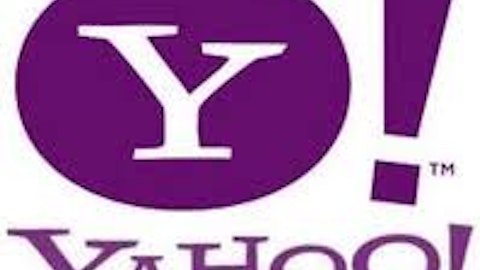
Hess showed a slight turnaround in the second quarter of the year, beating analyst earnings estimates unlike in the previous three quarters. Revenue did fall 6% and earnings per share fell 10%, but this was better than expected. The slight decrease in margins was due to increases in production expenses and depreciation; cost of goods sold actually dropped 13%, saving the decrease from being worse than it could have been. Thanks to a poor first quarter, revenue and earnings per share were down 6% and 29%, respectively, in the first half of 2012 compared to a year ago. According to Hess’s 10-Q, the revenue declines in the refining & marketing segment were offset by cost cutting, while lower margins in E&P turned revenue growth into a decline in operating income for that segment.
We’ve already mentioned Greenlight’s new position in Hess (see more of David Einhorn’s favorite stocks). Richard Perry’s Perry Capital also initiated a position in the company in the second quarter of 2012, disclosing ownership of a new 1.6 million share stake (find other stocks that Perry Capital is buying). Renaissance Technologies more than tripled its own position in Hess to over 1.3 million shares.
With the oil-linked fall in Hess’s stock price, the stock trades at 13 times trailing earnings. Wall Street analysts expect good earnings growth in 2013 compared to this year, and the forward P/E clocks in at 8. We can’t be sure that the company will deliver on that earnings growth, as it is tied to oil prices, but a trailing P/E of 13 is reasonable and even low earnings growth would make the multiple still more appealing.
However, when put up against its closest peer, the large oil company BP (NYSE:BP), Hess doesn’t look quite as good. BP also has an integrated energy network from exploration and production through refining and marketing. Partly because of its involvement with the Deepwater Horizon incident in the Gulf of Mexico, BP trades at what we believe is a discount to its fundamental value: its trailing and forward earnings multiples are both 8. This forward P/E is the same value that results from Hess’s earnings expectations, but all BP has to do to reach that target is tread water. With that, and BP’s 4.5% dividend yield and considerably larger market capitalization as additional pluses, we think it is a better buy for the long term. Other comparable companies include ConocoPhillips (NYSE:COP) and energy supergiant Exxon Mobil (NYSE:XOM). These oil players are actually in the opposite position as Hess: their trailing multiples are well in value levels at 7 and 9 respectively, but the sell-side expects their businesses to contract next year and this pushes the forward earnings multiples between 10 and 11. We’re wary of trusting a growth trajectory for Hess when these two large players are expected to see lower earnings per share, and both of these larger companies pay high dividend yields as well. Even considering Einhorn’s interest in Hess our inclination would be to choose the cheaper, larger oil companies with a particular preference for BP.




